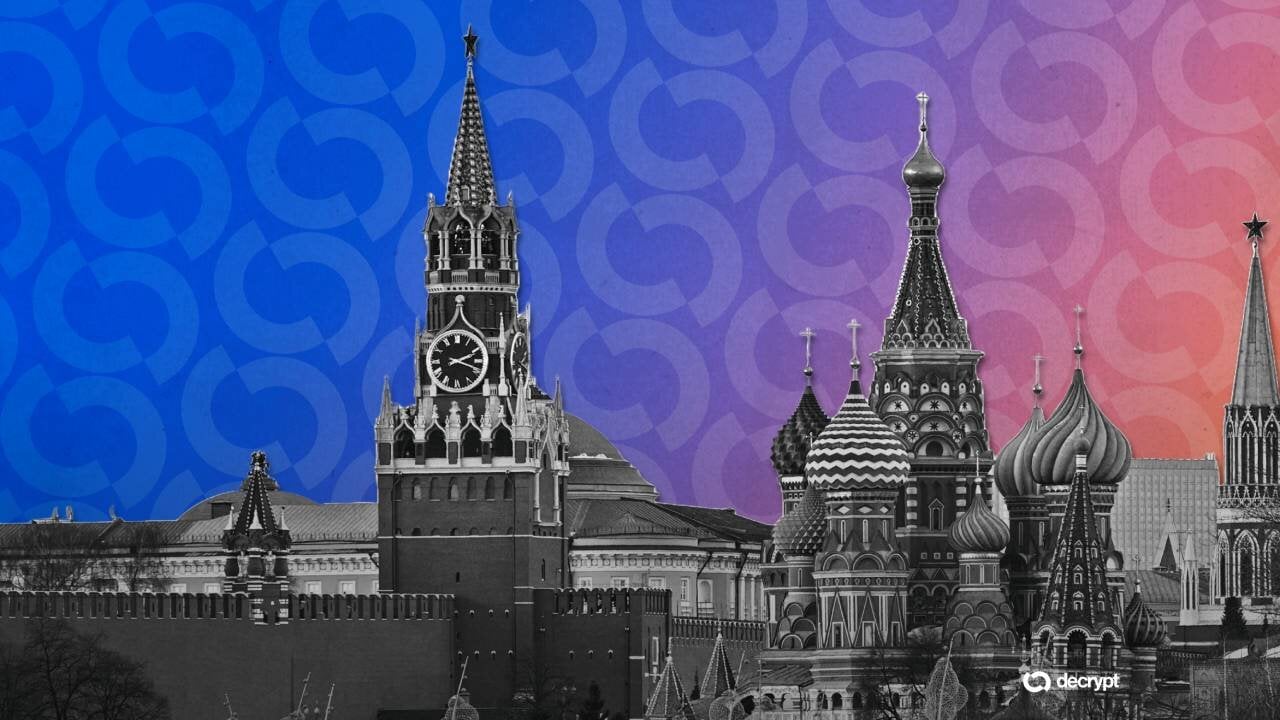Exposed: How Russian Entities Exploit Kyrgyzstan’s Crypto Boom to Dodge Sanctions

Sanctions? What sanctions? Russian firms are reportedly sidestepping economic barriers by funneling funds through Kyrgyzstan’s burgeoning crypto industry. Here’s how the game is played.
Kyrgyzstan—the unlikely crypto haven. While regulators elsewhere crack down, this Central Asian republic has become a backdoor for Russian capital. No KYC headaches, no SWIFT delays—just pure, unregulated crypto flow.
The loophole economy. With Moscow’s traditional banking channels frozen, crypto offers a lifeline. Kyrgyz exchanges allegedly process millions in ruble conversions daily—because when fiat fails, decentralized finance delivers.
Western watchdogs are furious but helpless. Tracking these transactions? Nearly impossible without blockchain forensics—and good luck getting local cooperation. Another win for crypto’s borderless ethos.
Of course, Kyrgyz officials deny everything. ‘Strict compliance’ claims ring hollow when your crypto volume spikes 300% post-sanctions. But hey—if the SEC can’t police Wall Street, why expect Bishkek to do better?
The takeaway: Sanctions create innovation. Whether that’s feature or bug depends on which side of the dollar you’re on.
Kyrgyzstan’s pro-crypto pivot
Kyrgyzstan’s government passed a pro-crypto law in January 2022, effectively recognizing cryptocurrencies as property, while also establishing a registration regime for VIRTUAL asset service providers (VASP).
In conjunction with growing demand from Russia, the passage of this law enabled the Kyrgyz crypto sector to grow rapidly, with VASPs having a transaction volume of $59 million by the end of 2022, and then of $4.2 billion in the first seven months of 2024 alone.
Yet Chase reiterated that there “is little evidence of significant local retail adoption or organic demand within Kyrgyzstan itself,” implying that the Kyrgyz cryptocurrency industry is effectively an outgrowth of its Russian counterpart.
According to TRM Labs, “Many Kyrgyz-registered platforms, including Grinex and Meer, exhibit clear links to Russian exchanges like Garantex and facilitate large-scale ruble-to-crypto transactions using Russian-backed stablecoins such as A7A5,” Chase explained. She added that these platforms have become “key conduits for Russian entities—both legitimate and illicit—looking to access global financial systems amid sanctions.”
TRM Labs’ report also identifies some of the entities that have been using Kyrgyz exchanges in order to circumvent sanctions, including paramilitary outfit Rusich Group, which has registered wallet addresses with Envoys Vision Digital Exchange (EVDE).
The firm also found that EVDE and other exchanges have interactions with cross-border logistics firms and Chinese financial institutions, suggesting that Kyrgyzstan is playing an increasingly important role in helping Russia to procure dual-use goods (such as semiconductors and drones) for military purposes.
For example, bilateral trade between Kyrgyzstan and Russia was worth $3.5 billion last year, while imports into Russia via nations such as Kyrgyzstan ROSE as high as $20 billion in the first half of 2023.
In addition, TRM Labs also cited figures showing that Chinese exports of 45 particular dual-use goods to Kyrgyzstan and Kazakhstan increased by 64% between 2022 and 2023, reaching a combined value of $1.3 billion.
And there are currently no real signs that Kyrgyzstan’s cryptocurrency sector will stop expanding in the NEAR future, with more than 126 VASPs now licensed in the country, and with its Ministry of Finance currently developing a domestic, USD-pegged stablecoin, USDKG.
A lack of checks and balances
Any potential progress is also likely hampered by Kyrgyzstan’s governance and political climate.
According to Altynai Myrzabekova, Regional Advisor for Eastern Europe and Central Asia at global anti-corruption organization Transparency International, Kyrgyzstan’s political environment is characterized by weak checks and balances, as well as increasing executive power, which “creates vulnerabilities” that can be exploited for illicit financial flows.
“While we have not independently assessed the specific use of Kyrgyz-based crypto exchanges by Russian actors,” she told Decrypt, “the broader regional context, including state capture, weak judicial independence, and opaque control of natural resources, suggests a high risk of such practices being enabled or overlooked.”
Kyrgyzstan scored 25 out of 100 in Transparency International’s 2024 Corruption Perceptions Index, a score which represents “serious concerns” about public sector integrity and transparency.
Myrzabekova told Decrypt that, “Without stronger safeguards, transparency measures, and the political will to enforce anti-money laundering and sanctions frameworks,” Kyrgyzstan remains “highly exposed to exploitation by corrupt actors and sanctioned entities.”

